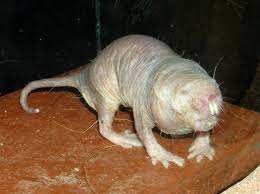
Introduction Eagles are among the most majestic and powerful birds of prey, symbolising strength and freedom in various cultures around the world. These remarkable birds are not only revered for their beauty but also play a significant role in maintaining ecological balance. Understanding their behaviour, habitat, and the challenges they face is crucial for fostering

Introduction The bond between pets and their owners is often cherished, with countless stories of affection and companionship. However, as any cat owner will tell you, these furry friends can sometimes be little mischief-makers. One of the less talked-about risks involves cats inadvertently causing burns to their owners. Understanding how this can happen is essential

Understanding Urban Foxes Urban foxes have gained prominence across the United Kingdom, adapting remarkably well to the urban landscape. As a species traditionally found in rural areas, their shift towards city living has sparked interest and concern among residents and wildlife enthusiasts alike. This transition presents a unique opportunity to examine how wildlife adapts to

Introduction to the Naked Mole Rat The naked mole rat, scientifically known as Heterocephalus glaber, is an extraordinary creature that has captured the interest of scientists and the public alike. Hailing from the underground tunnels of East Africa, these mammals are known for their unusual appearance and remarkable social structures. Their relevance is heightened by

Introduction The ongoing fascination with the natural world has led to numerous debates over which apex predator reigns supreme. Among these discussions, the rivalry of lions vs bears is a popular topic. These two iconic animals hold significant places in the ecosystems of their respective habitats and embody powerful symbols in cultures worldwide. Understanding their

Introduction Wolves, often regarded as both majestic and fearsome creatures, play a pivotal role in maintaining the balance of ecosystems across the globe. As apex predators, they influence the populations of prey species and contribute to the health of their habitats. Understanding the importance of wolves is crucial in the context of biodiversity conservation, as

Introduction to the Issue of Rats Rats, often viewed as pests, play a complex role in urban environments. Their adaptations to city life make them prevalent in many communities around the world. Understanding their behaviour and impact is crucial for public health and city management. Rats in Urban Settings In recent years, cities across the

Introduction In recent months, the prevalence of giant rats across the UK has sparked significant concern among residents and health officials. These large rodents, known for their intimidating size and potential health risks, are increasingly being spotted in urban areas, raising alarms about public health and safety. With reports of their presence becoming more common,

Introduction to Tarantulas Tarantulas, the largest members of the spider family, have captivated and terrified humans for centuries. Their intriguing behaviours, diverse species, and ecological roles make them a significant subject of interest. As global awareness of biodiversity grows, understanding tarantulas’ places in ecosystems becomes increasingly important. Overview of Tarantula Species Globally, there are over

Introduction Monkeys are among the most captivating creatures on our planet, showcasing intricate social structures, diverse behaviours, and significant ecological roles. With over 260 species, ranging from the tiny Pygmy Marmoset to the large Mandrill, these animals are vital to our understanding of evolution and the environment. In a world increasingly impacted by climate change,